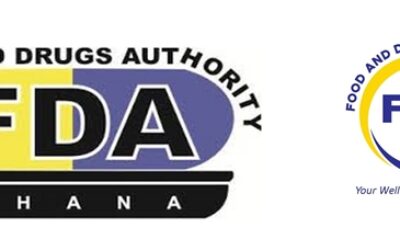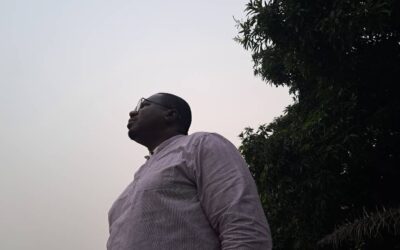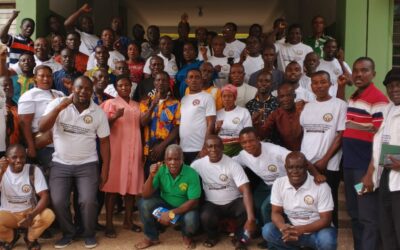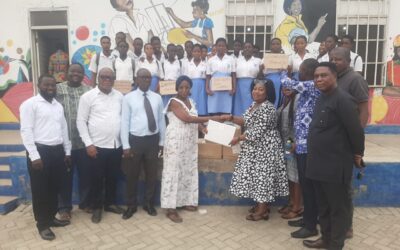Illegal small-scale mining, popularly known as galamsey, has become one of the greatest threats to Ghana’s survival. From poisoned rivers to destroyed cocoa farms, the menace continues to cripple the economy, endanger public health, and erode the natural environment.
Despite years of campaigns, galamsey persists, raising questions about whether Ghana is truly winning this fight. Experts say the solution lies in an integrated strategy that balances law, technology, and citizens as three powerful pillars in the battle against galamsey.


The causes of galamsey are complex and interconnected. Unemployment and poverty have pushed thousands of young people into illegal mining as their only means of survival. Rising global demand for gold makes the trade lucrative, while weak enforcement of mining laws allows offenders to escape justice. Corruption and political interference have further deepened the problem, with some financiers and operators receiving protection from powerful figures.

George Akom
In addition, bureaucracy and high costs make it difficult for small-scale miners to acquire legal concessions, forcing them to operate illegally. The absence of alternative livelihoods in affected communities has only worsened dependence on mining.
The effects of galamsey are devastating and far-reaching.

Economically, Ghana loses about US$2 billion every year through gold smuggling and unregulated mining. More than 2.5 million hectares of forest cover have been lost within a decade, while cocoa production has dropped sharply as about 30 percent of farmlands in mining regions have become unproductive.
The situation has also driven up the cost of water treatment. For instance, turbidity in some water systems has risen from 100 NTU to over 7,000 NTU as a result of mining-related siltation.
The health consequences are equally alarming.
Mercury levels in soils around galamsey sites average 56 parts per million (ppm), with some areas recording as high as 1,342 ppm, far above the World Health Organization’s safe limit of 10 ppm. Arsenic concentrations have exceeded 10,000 ppm in certain regions, exposing entire communities to toxic poisoning. Long-term exposure to such heavy metals causes kidney failure, liver damage, respiratory illnesses, neurological disorders, and developmental problems in children. Many rivers, which once served as sources of drinking water, have become heavily contaminated and unsafe.
The environmental and social costs cannot be ignored. More than 60 percent of Ghana’s rivers and streams are now polluted, with many classified as being in critical condition. Deforestation, soil erosion, and siltation have worsened, leading to a loss of biodiversity and further contributing to climate change. Communities have also been torn apart by conflicts between miners, residents, and security agencies. The destruction of natural resources not only undermines present livelihoods but also threatens the survival of future generations.
Despite several interventions, the fight against galamsey has been fraught with difficulties. A lack of political willpower continues to weaken enforcement efforts, as some leaders hesitate to act decisively for fear of losing electoral support. Corruption remains a major obstacle, with certain state officials and traditional leaders enabling or directly benefiting from galamsey operations. Weak institutional capacity, marked by limited logistics and manpower, prevents regulators from executing their mandates effectively.
In addition, widespread poverty and unemployment keep driving people into the trade, while insecurity and intimidation silence communities and individuals who would otherwise speak out.
To overcome these challenges, an integrated strategy anchored on law, technology, and citizens is necessary.
The legal framework must be strengthened, with existing laws enforced without political interference. Harsher penalties, including custodial sentences, asset seizures, and heavy fines, must be introduced to deter offenders and financiers.
Fast-track courts should be established to ensure swift prosecution of galamsey cases, while government agencies must improve coordination to close the loopholes exploited by illegal miners.
Technology must also be at the center of the fight. The use of drones and satellites can provide real-time monitoring of illegal mining activities, while Geographic Information Systems (GIS) can help map and track encroachments on mining and protected areas. Internet of Things (IoT) sensors should be deployed to monitor water quality, offering early warnings of pollution in rivers and streams.
At the same time, safer and more environmentally friendly mining technologies should be promoted among licensed small-scale operators to reduce destructive practices. Data-driven decision-making must guide the allocation of resources and enforcement strategies.
Citizens, too, must be part of the solution. Communities should be empowered to act as watchdogs by reporting galamsey activities safely and anonymously.
Public education campaigns are needed to raise awareness about the dangers of galamsey to water security, agriculture, and public health. More importantly, government and non-governmental organizations must provide alternative livelihoods in agriculture, aquaculture, and vocational training to reduce reliance on illegal mining. Civil society groups, faith-based organizations, and the media must sustain advocacy, while chiefs and traditional authorities must be held accountable for protecting lands under their jurisdiction.
The statistics are chilling: billions of dollars lost annually, more than half of Ghana’s water bodies polluted, and toxic chemicals poisoning communities.
Yet, the fight against galamsey can be won if law, technology, and citizens work together in a unified strategy. The stakes are high. Ghana’s survival, the well-being of future generations, and the health of millions depend on urgent and decisive action.
By George Akom- Educationist, Information Systems and Governance Analyst
0243387291


















